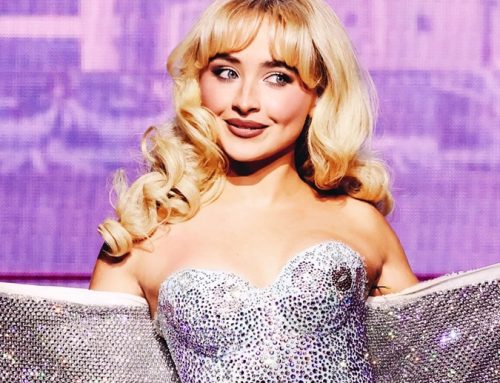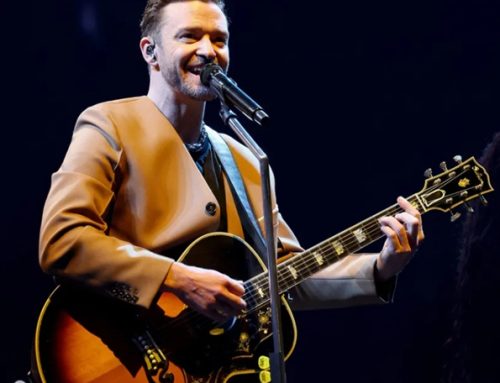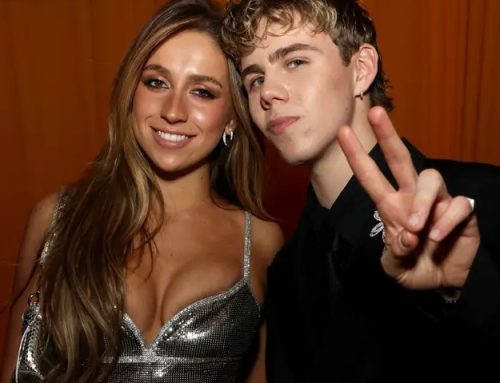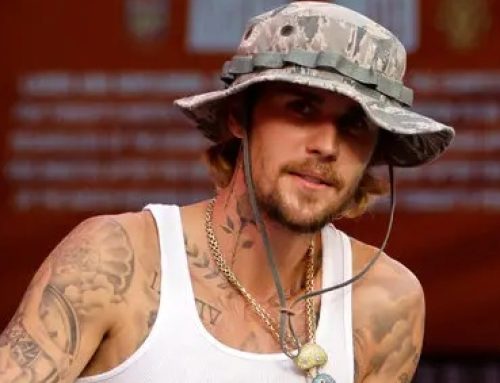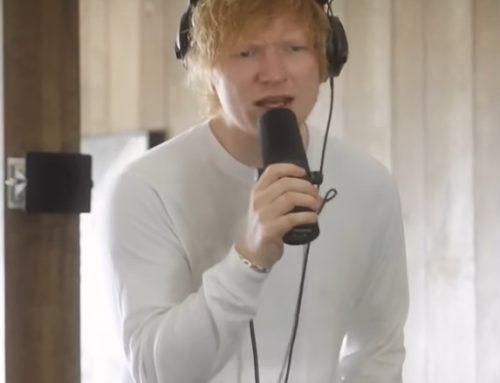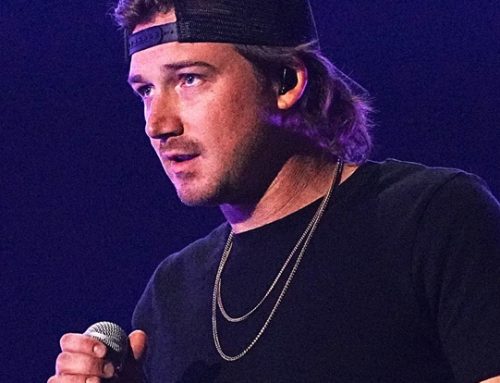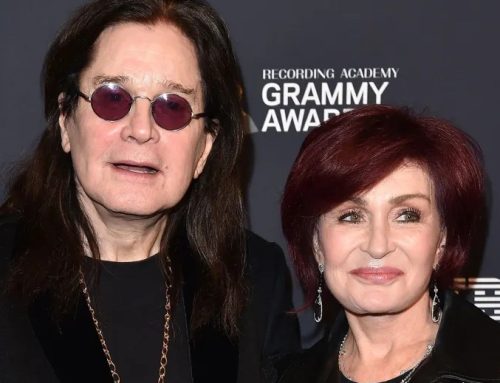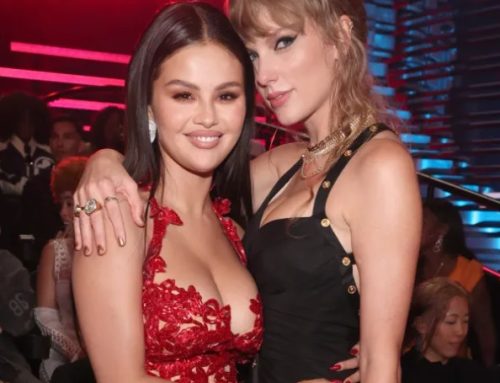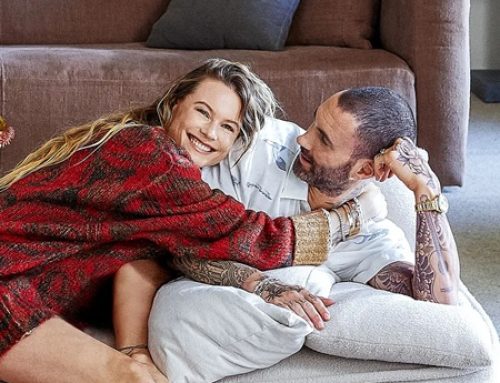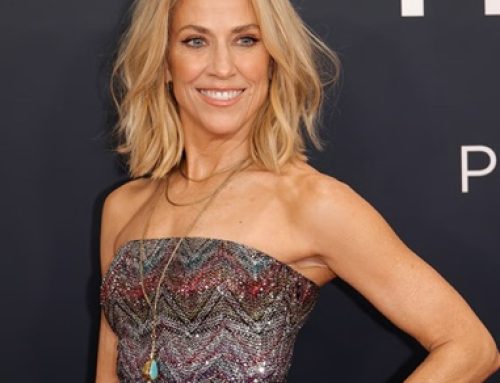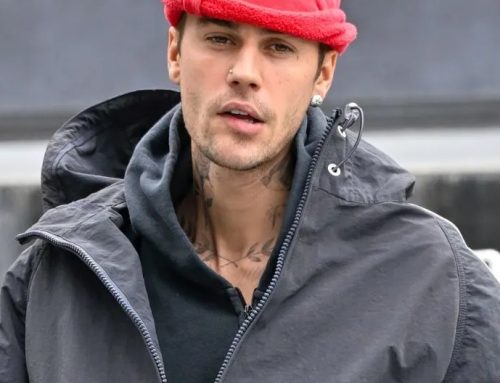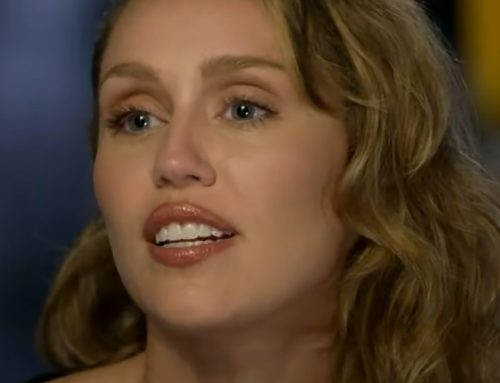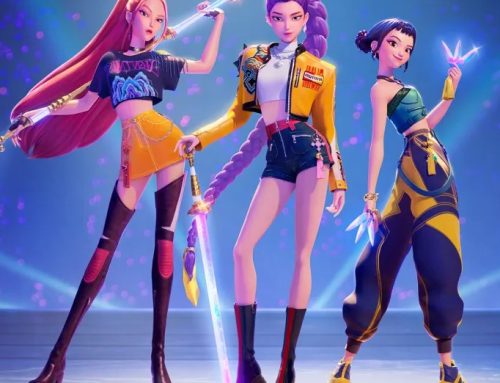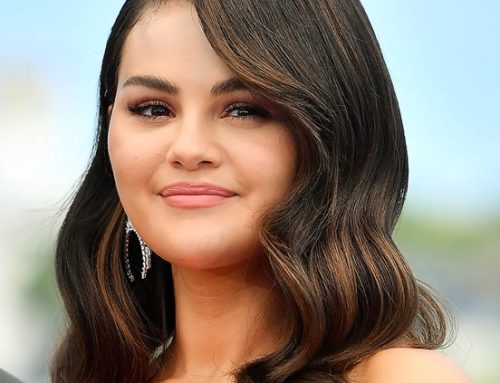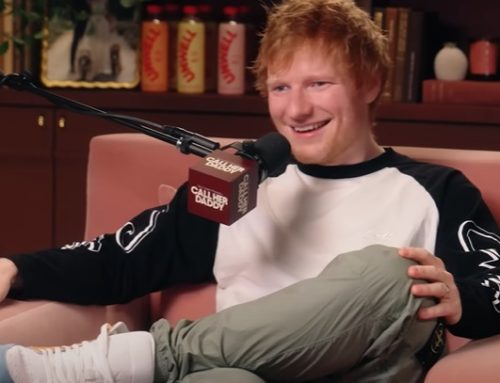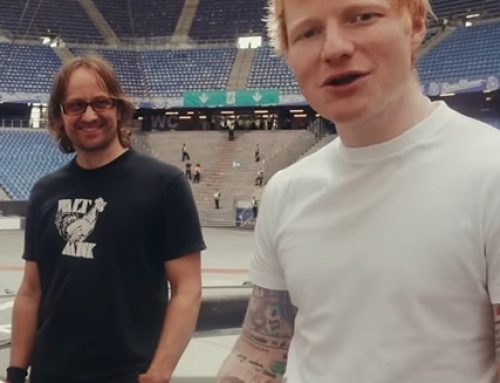The ‘Almost Famous’ actress talks working with Linda Perry, among other collaborators, on her new set.
It’s fair to say that Kate Hudson manifested her new album into being. Even though the actress has been writing songs since she was 19, it wasn’t until the COVID lockdown that she strongly felt that if she didn’t make an album, “I would just be so regretful,” she says.
Around that time, she sang for a charity Zoom for one of her children’s schools and serendipitously drew the attention of Grammy-nominated songwriter/producer Linda Perry, who had a child at the same school.
“She called me up [and asked] ‘Do you sing a lot, and would you want to come in the studio and sing a song I think you’d sound really good on?’” Hudson, 45, recalls. “The song wasn’t on the album; it was just a way to get together and meet and see. And then she’s like, ‘Do you write?’ and I said, ‘Yeah,’ and she’s like, ‘Well, Let’s write!’”
The result is Glorious, a wide-ranging set out Friday (May 17) that draws upon many different styles, including bouncy ‘80s synth-pop (“Talk About Love”), acoustic folk (“Live Forever”), blues (“Love Ain’t Easy”) and thumpy rock (“Gonna Find Out”).
Most of the 12 songs — which examine all manner of relationships, from romantic to platonic and parental — were written over a two-week period. The music came pouring out of Hudson and her co-writers/co-producers, who included Perry, her finance, musician Danny Fujikawa, and songwriter (and Carolina Liar keyboardist) Johan Carlsson.
“It was literally like opening a channel,” Hudson says. “At one point, we wrote three songs in a day and Linda’s like, ‘I think we need to stop. I think we have two albums.’ We could have written forever. Linda said. ‘You have all of this emotion that just needs to come out.’”

Hudson, who is managed by Sandbox Entertainment, decided to release the album independently through label services company Virgin Music Group. Below, the effervescent star talks to Billboard from the set of the upcoming Mindy Kaling-created Netflix basketball comedy Running Point — where Hudson serves as executive producer, and also plays the head of fictional pro basketball team the Los Angeles Waves. She talks about going independent, crafting the album and what a certain iconic fictional music fan might think of her new album.
We all knew you could sing from Glee and other roles, even as far back as Almost Famous. But was it different to be singing as yourself instead of as a character?
Yes! When I’ve been singing in movies, [I’m] being produced to sing in a certain way. The music I’ve always been writing, it’s developed since I was really young –what my natural, instinctual singing voice is. So, when I went into to make a record with Linda, it was really important that what was coming out was just instinct. I wasn’t going in with the intention of singing a song that sounded a certain way. That was really fun for me, because I realized what my natural, instinctual voice has been.
It sounds like the perfect confluence of events — because you’ve said that during the COVID lockdown, you felt very strongly that the time was right to finally record music after creating it for decades.
In COVID, it became sort of the thing for me. I was writing a lot of music. I was in my house with my piano and our guitars and our studio, and we just started writing a ton. That’s when it really started to hit me that if I don’t do this, I’ll feel like I’ve left something creatively on the table and I would be just so regretful. So, I was putting it energetically out there and then it just happened.
Meeting Linda, it came with no expectation. I didn’t have this big grand plan. I didn’t know what the album was going to look like, where it was going to fit. But when Linda and I started writing with Danny, something just happened. We wrote so well together. She and I are both Aries. We both like to move quickly through things and not overthink stuff. So we have this great spontaneous, prolific writing relationship, and I felt so lucky because she’s such an amazing songwriter.
Linda is one of the top songwriters in the world. Were you intimidated to write with her?
No. We didn’t have that kind of relationship. We had a real fondness for each other. I have deep respect for her art, but I’m also not a spring chicken. When you’re working together, and collaborating, you have to really be open — and it goes both ways. When we walked in, the first thing Linda said, was, “I want to be a facilitator and help you get what you’re feeling and what you want.” That is exactly how she approached it, which was it wasn’t about her, it was about helping me really realize some of the sounds and the feeling that I wanted to bring to an album.
One of the most emotional songs on the album is “Live Forever,” which is about your oldest son, Ryder — and almost growing up together, since you had him when you were so young. What was his reaction to hearing it?
Emotional. It’s an emotional song — and he was leaving at the time [for college], so it was even more emotional when I wrote it. He’s been in college for two years. You realize really fast that your kids leave, but they don’t really leave. [Laughs.] But that moment for a parent and for their child is so intense — and if you have a wonderful relationship with them, it’s so emotional. I actually sang it in New York [a few weeks ago]. I did this little show and it was the first time I sang the song in front of him, which was really, really nice.
You span a lot of different pop styles here, while “Live Forever” is country-tinged. So many pop artists, including Beyonce, Post Malone and Lana Del Rey, are making country albums. Any thoughts on doing a country album?
I don’t know what I want to do. I think that country comes naturally to me. A lot of the songs we write kind of sit in there — Americana, country, roots rock. I know that there’s going to be a lot of that — especially just writing-wise, whether it’s me singing it, performing it or for someone else. Danny and I wrote a couple of country songs the other day, and we’re like, “Oh, who are we giving these to? We’ve got to get that one into someone’s hands.” I’ve always loved country music, but my mom’s whole family, the Hawns, are all Nashville. I’ve got a lot of that running in my family.
You have no shortage of musical people that you’re connected to, including Ryder’s dad, The Black Crowes’ Chris Robinson, and your second son’s father, Muse’s Matt Bellamy, as well as your own dad, Bill Hudson. Did you talk to any of them about creating music, or have you played the album for them?
We’re all very close. We’ve all shared music before it came out. I got to hear some of Chris’ new album [The Black Crowes’ Happiness Bastards], which I think is so great, before that came out. I don’t know how we’ve been able to manage it, but we were all very close and holiday together and vacation together. Honestly, I’ve always had nothing but support from my partners in my life when it comes to music, and that’s been forever. So that’s always been so nice. Without speaking for them, I think they’ve all very excited and happy that I’m actually pursuing it.
You are also known as a savvy businesswoman. You’re executive producing your new series and co-founded the activewear line, Fabletics. How did you educate yourself about the music business?
I’ve understood a bit of it since I was very young. I met Chris when I was 21 years old. But I must say, I hadn’t really understood the ins and outs of the business until I started to really have to set things up and understand it. And my goodness, it is such a complicated business. It’s quite a grind of a business. It’s one thing to love music and to love to play music and then it’s another thing to have that be your career. The business side of it— shocking. I had no idea there were just so many different avenues and revenue streams and people involved. It’s a very complex business. The publishing, your masters and if you own them. It’s endless.
I think when you’re young and you’re hungry, you just want to get out there and get on the road. But the business side of it can be so complicated that you realize like, “Oh, wow, no wonder there’s all these stories of kids and people not really being protected.” I feel like there should be a course.
Why did you decide to release your album independently?
I feel like in this time on my life, I want to do it because I love it and because it was just really important that it felt really authentic. I just felt like the only way that I could really do that is to be independent.
We brought up Almost Famous before, what do you think Penny Lane would think of the album?
[Giggles.] Well, last time I checked, she was my No. 1 Band-Aid — but, you know, she’s also biased.


